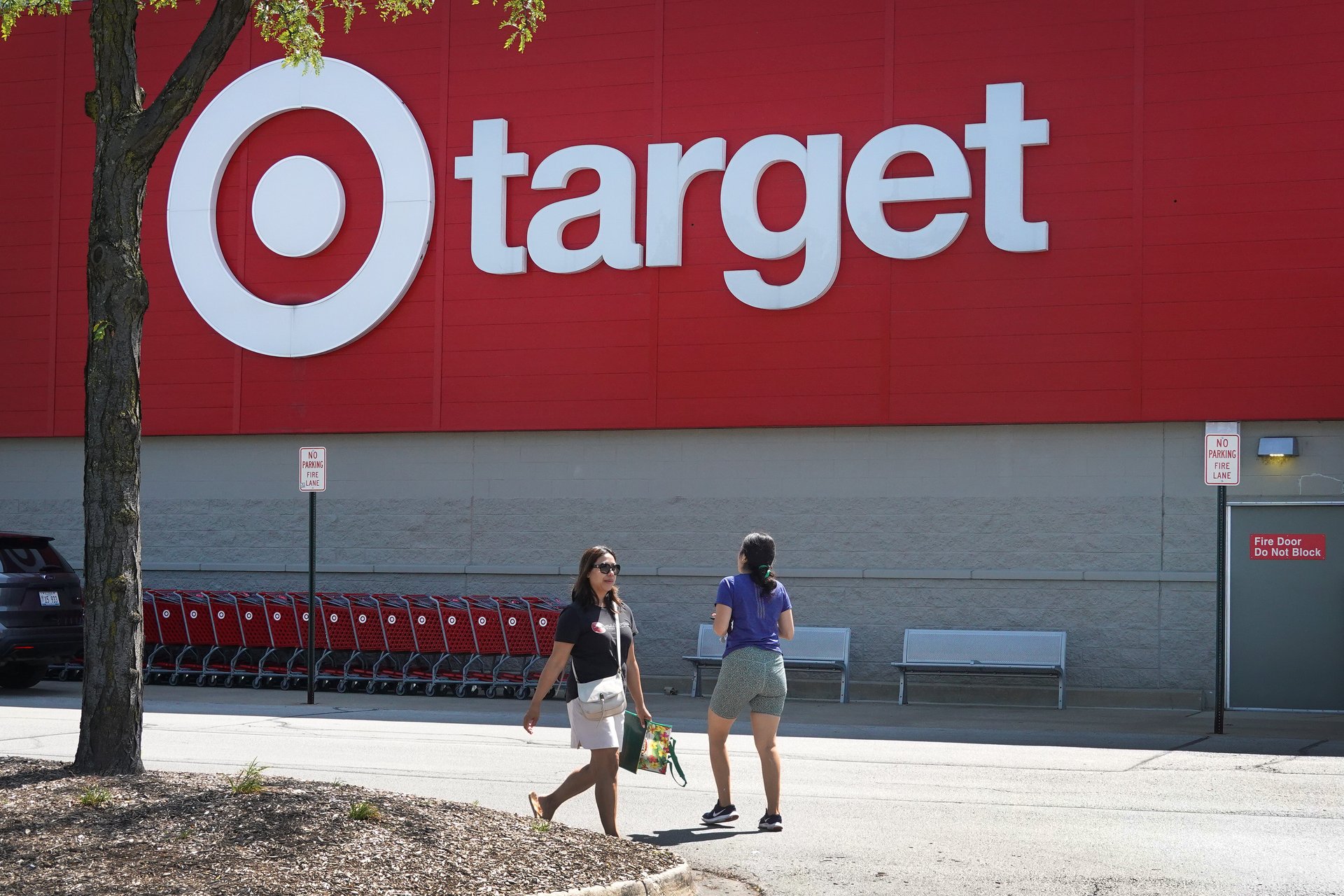Target follows Costco and Walmart's lead on tariffs
The retail giants are pushing for price reductions as trade tensions mount and import costs increase

Target is reportedly pushing its Chinese suppliers to absorb some of the costs of U.S tariffs, following in the footsteps of retail giants like Costco and Walmart.
Suggested Reading
With tariffs on Chinese goods set to increase on April 2, major U.S. retailers are rushing to offset the costs. This has added more pressure on Chinese exporters, who are already facing the impact of years of tariffs and slim profit margins.
Related Content
In one case, a Chinese supplier of hairpins and claw clips said Target (TGT) requested they “pick up half the costs of the tariffs.” After attempting to negotiate, the supplier saw delays in their order and ultimately lost the business. Target has not responded to Quartz’s multiple requests for comment.
Currently, there is a 20% tariff on all Chinese imports, impacting around $430 billion worth of goods. Target does not operate any physical stores in mainland China, but says it has worked to reduce its reliance on Chinese imports, cutting the share of its goods from China from 60% to 30%.
In comparison, Costco operates only seven warehouse in China, far fewer than Walmart’s (WMT) more than 330 locations. Unlike Target and Costco (COST), Walmart has faced criticism from Chinese authorities, who have called its strategy unfair and irresponsible.
Despite these efforts to reduce reliance on China, Target’s CEO Brian Cornell has said that price increases are still expected, particularly for fresh produce such as bananas, avocados, and strawberries. He added that Target has been actively “scenario planning” to minimize the impact of tariffs and avoid excessive price hikes for consumers.
Target is also facing other challenges. Recently, the retailer slashed its corporate employee bonuses, blaming weaker consumer spending and inflationary pressures. This move followed Target’s cautious March earnings report, which warned of “ongoing consumer uncertainty” and concerns about tariff impacts.
Additionally, Target has seen a decline in foot traffic after scaling back its Diversity, Equity, and Inclusion (DEI) initiatives. While other retailers, like Walmart, have made similar moves, Target’s decision has sparked a 40-day boycott and lawsuits from shareholders and the state of Florida. These combined pressures are making it harder for Target to maintain its momentum or uphold its “Tarzhay” image.